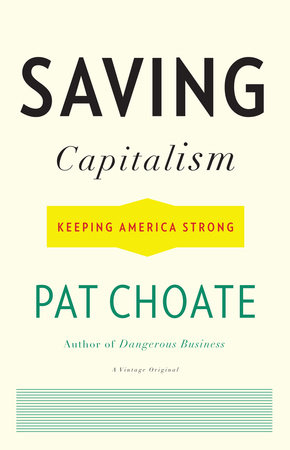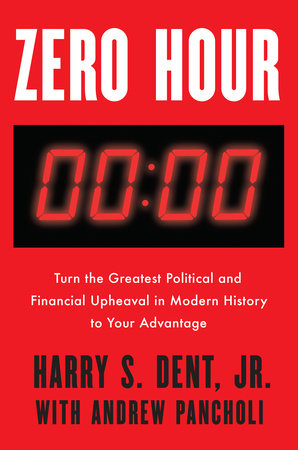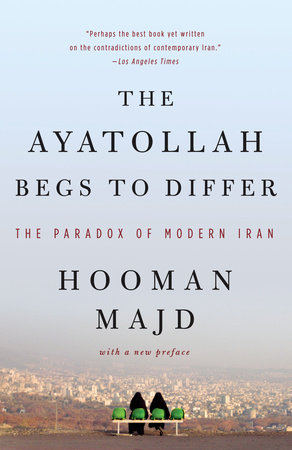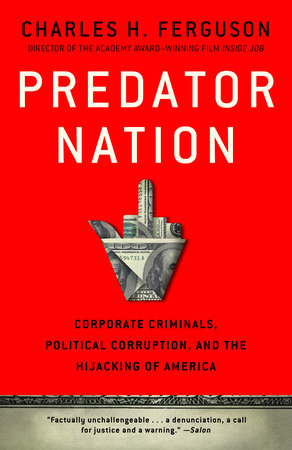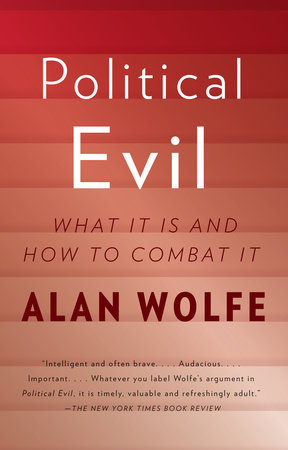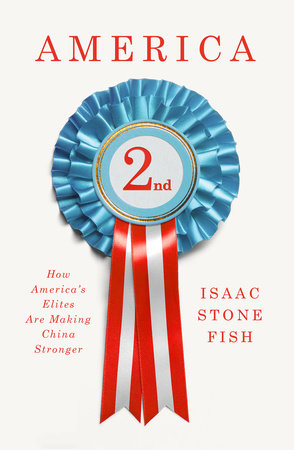Q: Why did you write this book?
A: My goal in writing this book is to create a clear and concise overview of the situation we are in and put forth positive solutions.
The book goes beyond questions of whether the stimulus is too big or not big enough. It proposes creative reforms that will strengthen the economy overall, and for a long time to come.
Q. How grave is the economic situation, really? Many economists are saying the worst is over.
A: The arithmetic of our state of affairs is stark. Over the past 28 years, the United States has gone from being the world’s largest creditor nation to its largest debtor. Our federal budget deficits are doubling the national debt every 8 years and our trade imbalance with the rest of the world since 1981 has created a cumulative deficit of more than $6 trillion, which constitutes the largest unilateral transfer of wealth in world history. The financial sector, moreover, has more than a half trillion dollars of sub-prime loans that have yet to be reconciled on their books; almost $170 billion of the $1 trillion of unsecured credit card debt is in default, the commercial real estate sector has an equal financial overhang; 6 million home mortgages are in default or in foreclosure; and the Federal Deposit Insurance Corporation’s reserves are depleted.
No one in public life believes that the U.S. debt accumulation and these massive trade losses are sustainable for much longer. Yet, the competing economic and political interests in our society have created a political gridlock in which these twin deficits go unaddressed.
My hope is that this book will stimulate a substantive discussion on what we need to do to save our economy. I have put forth six game-changing proposals that are within our political and fiscal capacity. They are a good starting point.
Q. You write that the economic stimulus plans enacted by Congress in late 2008 and in 2009 do not go far enough. Are we going to need more bailouts?
A: Yes, more bailouts will be required to keep the nation out of deep depression at least as far into the future as the U.S. continues its policies of market absolutism that prevent the nation from dealing pragmatically with changing global realities.
The financiers, and their lobbyists, want government out of their business, and its in their interest to keep alive this notion that the system works best with little or no regulation, and that it has thrived without it. But, this is not true. The present financial crisis is the 9th since 1982. In each instance, the money industry gambled, lost and then passed the cost onto U.S. taxpayers. Since 1982, the bailout policies of a succession of Administrations, including the present one, have been to restore the industry to the way it was before the crash, including retaining the same people in charge and even paying them enormous bonuses despite their failures.
Until the U.S. government regulates the financial industry in its entirety, sets prudent bounds on its risk taking, requires sound capital reserves, and rids the industry rids of those whose misjudgment created this crisis, another spectacular financial failure, the 10th, is inevitable. The only question is when.
Until we make basic structural changes, such as I propose, in our trade, financial, innovation, infrastructure, budgetary and related policies, we are years away from creating long-term, self-sustaining, non-inflationary economic growth.
Q. You blame “free market absolutism” for much of what happened in the recent financial crash. What do you mean by that?
A: U.S. economic policy has been under the control of those who fervently believe in the concept known as the “efficient market hypothesis,” which is an academic theory that says that the decisions of millions of independent participants in the economy, always acting to gain their own narrow advantage, creates a market whose decisions are always right. Under this market absolutism, the U.S. government since 1981 has aggressively deregulated many parts of the economy, including trade laws and the Depression-era controls imposed on finance.
I open the book with quotes from a Congressional hearing in October 2008 in which Allan Greenspan, former Chairman of the Federal Reserve System, told a Congressional Oversight Committee that he was shocked to find that his view of the world (efficient market ideology) was not right and was not working.
Q. In your book, you call for major reform to the United State health care system. What specific changes would you like to see and what do you think of the current proposals Congress is debating?
A: I call for expanding Medicare to include the entire U.S. population. It would be far more efficient than any proposal now before Congress, since the administrative costs of Medicare are about a third that of all other alternatives. The Medicare model requires broad-based financing from individuals and employers, allows choice, and enables savings from mass purchases. For decades, Medicare has been nothing more than a government-operated insurance company. Contrary to much of the current debate, Medicare beneficiaries are overwhelmingly pleased with the assured accessibility and modest costs.
The current proposals in Congress would keep the U.S. insurance industry in control of health care in the United States. Costs will remain high, those corporations will continue ration care to keep profits high, and millions of Americans will be without any care other than at public emergency rooms. Contrary to public misconception, the U.S. health care system is providing poorer service overall than in most most other developed countries and at a far higher cost.
Q. You advocate for a drastic change in the tax system by adopting a Value Added Tax. Can you briefly describe what the VAT is and why it will help?
A: More than 150 other nations use a Value Added Tax (VAT). Producers and vendors pay the tax at each successive stage of production and on final sale. Their payment is only on that discrete amount of value they add to the price of the good or service. Administration is easy, much like the collection of sales taxes. I propose that the U.S. eliminate the existing corporate and personal tax systems. The VAT would apply only to consumption. All savings would be untaxed. The administrative burden on taxpayers would disappear as there would be no need to file annual tax returns and there would be no more IRS audits.
Equally significant, current global trade rules allow nations with a VAT to rebate the tax on all exports from that country and impose a VAT-equivalent tax on all imports from the United States. In 2007, U.S. exporters paid more than $135 billion in VAT equivalent taxes to other nations. Adoption of a VAT would save every penny of that for U.S. exporters, creating a strong incentive to keep jobs in America.
Other nations have adopted small VAT rates on essentials such as food, medicine, clothing and housing, thereby eliminating tax regression. Tax reform, and a VAT, are essential to any long-term U.S. economic recovery.
Q. With increasing competition from around the globe, how can America continue to remain a leading innovator in business and technology?
A: America’s intellectual property laws are the secret to the success of American innovation. The U.S. Constitution gives authors and inventors the right to exclusive use of their creations for a time set by Congress and the means to defend that right in federal courts.
The U.S. system of patents, copyrights and trademarks is the strongest in the world. Creative people from around the globe come here for those protections, so much so that half of all patents issued now go to foreign inventors.
Over the past 15 years, administrative incompetence and the political diversion of patent fees collected by the Patent Office have greatly weakened our patent system.
Also, a group of 15 Big Tech corporations that have been sued more than 1300 times between 1996-2008 for patent infringement and anti-competitive practices banded together in 2005 to change U.S. patent laws so that infringers would pay less and could more easily challenge the validity of patents issued. I tell that story and present new data on their efforts and their success.
After interviewing many leading inventors, patent examiners, venture capitalists, and successful large corporations that rely on patents, I have developed and put forth in the book several recommendations that will encourage more invention, investment and job creation in America, and make the innovation process much faster, certain and inexpensive.
Invention is America’s competitive edge.
Q. What role does infrastructure investment play in your proposed six-point plan?
A: It is a key part.
If innovation is the brains of America’s economic system and finance its heart, then infrastructure is its backbone. Yet, America’s public facilities, its domestic civil works, are wearing out faster then they are being repaired and replaced.
This book calls for the massive rebuilding of America’s public infrastructure over the forthcoming five years – a $2.2 trillion commitment equal to that made in the mid-1950s to build the Interstate Highway System. A five-year, $440 billion program would create 7 million new jobs for the five-year period. Of these, 4.6 million would be directly involved in the rebuilding work and another 2.4 million would be working in the manufacturing and support industries, such as steel and controls.
To guide this massive investment, the book also calls for the creation of a national capital budget that would be limited to civilian public facilities. The General Accountability Office has repeatedly urged Congress to create this basic management and budget tool to provide uniform projections for major federal capital investment programs; a summary of needs assessments; the relationship between such capital investment and economic variable; to assist state and local governments in planning for their major capital investment programs; and to improve legislative oversight over federal capital investments.
A national capital budget is an essential tool needed in any long-term effort to save our economy.
